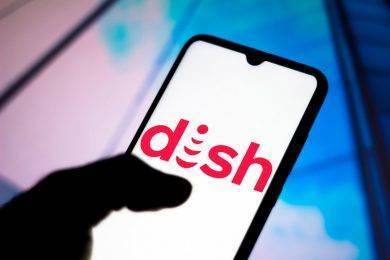A feud between Dish Network and T-Mobile has set the stage for an agreement that will have Dish pay AT&T at least $5 billion over 10 years. In turn, AT&T will provide cellular network capacity that Dish will use to serve its customers as it builds its own 5G network.
Dish 5G Network
Dish Network announced earlier in 2021 that the company was partnering with Amazon in order to deliver the first cloud-native 5G network in America. Intel had previously made the case for cloud-native 5G and had categorized the advantages into five key areas: reduced capital and operational costs, faster time-to-market, scalability, flexibility and resiliency. The Dish 5G network will launch in Las Vegas and spread from there. It has already set up a website and begun to connect with prospective customers. But it will need a way to serve customers now and not just in Las Vegas but throughout the United States.
Dish vs. T-Mobile
That is where the Dish and T-Mobile partnership initially began. T-Mobile had purchased Sprint. In allowing that merger, the federal government required that T-Mobile sell the Boost Mobile prepaid cellular business to Dish along with spectrum licenses and access to the combined T-Mobile/Sprint network at a wholesale level. The goal here was to make Dish a major carrier and fill the competition void that would come from Sprint no longer existing as its own entity. But since that point, Dish has made numerous FCC filings that T-Mobile was acting in an anticompetitive manner. It had, for instance, accelerated the timeline in which it would shutter its 3D CDMA network. According to Dish, this is a move T-Mobile had made specifically to harm Dish and not in its own best interests.
Dish and AT&T partnership
Not interested in moving forward with T-Mobile in any capacity beyond that which had already been set forth by regulators, Dish began looking for another partner, and it found it in AT&T. AT&T agreed to a nonexclusive deal, which means that Dish can use both T-Mobile and AT&T services in order to meet the needs of its own customers. But Dish announced that AT&T will serve as the primary provider for the Dish MVNO—mobile virtual network operator—and that it actively seeks to minimize the use of the T-Mobile network. Dish customers include not just Boost Mobile but Republic Wireless and Ting Mobile, and the company hopes that the new partnership will accelerate its expansion into rural areas.
Dish vs. T-Mobile Not Done Yet
T-Mobile contends that Dish “cherry-picked” statements in order to make its argument against it. It said that it never agreed to maintain the CDMA network for three years but rather that it would shut it down within at least three years. The FCC is still in an investigation phase and has not yet made a ruling. In the meantime, Dish and T-Mobile have other disagreements afoot. T-Mobile, for instance, has urged the FCC not to award terrestrial mobile rights to companies with MVDDS—multichannel video and data distribution service—satellite TV licenses, which is seemingly a direct shot at DISH.
Moving Forward
An essential component of the T-Mobile/Sprint merger was the commitment from Dish to build a 5G network that would serve at least 70 percent of America by June 2023. AT&T thus far has approached this as an opportunity. T-Mobile sees it as a threat and has acted accordingly. The next two years should be fascinating as this continues to unfold.
My name is Sardar Ayaz a professional content writer and SEO expert having Proven record of excellent writing demonstrated in a professional portfolio Impeccable grasp of the English language, including idioms and current trends in slang and expressions. I have ability to work independently with little or no daily supervision with strong interpersonal skills and willingness to communicate with clients, colleagues, and management.
I can produce well-researched content for publication online and in print, organize writing schedules to complete drafts of content or finished projects within deadlines. I have 12 years’ experience to develop related content for multiple platforms, such as websites, email marketing, product descriptions, videos, and blogs.
I use search engine optimization (SEO) strategies in writing to maximize the online visibility of a website in search results











